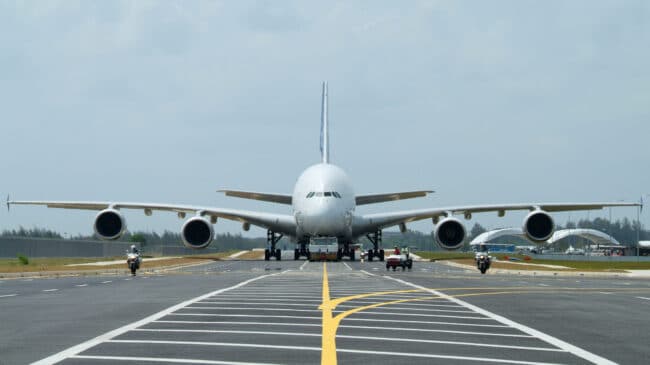The Airline Deregulation Act was signed into law in 1978 and largely eliminated the economic regulation of the domestic U.S. airline industry. A 1969 article in Reason magazine by Reason Foundation’s Robert Poole detailed the strict regulations put forth by the Civil Aeronautics Board, which had established and enforced a “huge cartel” in air travel to the detriment of consumers prior to 1978. Since 1978, thanks to the additional competition enabled by deregulation, average inflation-adjusted airfares have fallen by more than 40%.
However, regulatory barriers to international airline competition remain in place, most notably the prohibition on cabotage—the service of domestic routes by foreign air carriers. The European experience with airline cabotage suggests deregulation targeting these remaining barriers could enhance airline competition and lower consumer airfares in the U.S.
Since the Air Commerce Act of 1926, the United States has prohibited airline cabotage. This law was designed to protect the nascent air travel industry and was modeled on the Merchant Marine Act of 1920 (commonly known as the Jones Act), which prohibits cabotage in maritime freight transportation.
Unfortunately, as the domestic air travel industry matured, restrictions on foreign carrier participation in domestic civil aviation did not decrease. Under current law (49 U.S.C. § 41703(c)), airline cabotage is prohibited unless the secretary of transportation declares an air service emergency (49 U.S.C. § 40109(g)) and specifically exempts a specific foreign carrier so it can serve a specific route, which has occasionally happened with far-flung Pacific territories after the sole domestic carrier exits the market or severely cuts air service.
In contrast to the U.S.’s rigid stance against airline cabotage, Europe has liberalized its air travel marketplace. In the early 1990s, the European Union began phasing in airline cabotage among member countries as part of its liberalization of civil aviation. In just a couple of years, the EU was seeing positive results. George Mason University transportation economist Kenneth Button noted in a 1998 article, “Since 1993, 80 new airlines have been created while only 60 have been dissolved; 90 to 95 percent of the passengers are now traveling at fares that are lower in real terms than they were in 1993.”
Today, comparable airfares in Europe are significantly cheaper than those in the United States, even when considering the significantly higher taxes and fees imposed on EU air travel. The evidence from Europe and basic economic theory suggests that cabotage can improve service and lower prices. But U.S. air carriers and their unions strongly resist the mere mention of adopting a similar policy in the United States.
In recent years, many politicians have alleged that growing concentration among U.S. domestic air carriers harms consumers. There is little economic evidence to support these claims, and many of these same politicians are vocal opponents of any foreign airline entry, even on international routes. One example is outgoing House Transportation and Infrastructure Committee Chairman Peter DeFazio (D-OR). For decades, Rep. DeFazio has opposed the streamlining of the U.S. airline industry through carrier mergers. The best available evidence finds that these mergers have benefited consumers.
Rep. DeFazio also led the charge against low-cost international air service operated by foreign carriers, introducing numerous bills aimed at banning a specific low-cost European carrier, Norwegian Air International, from entering the U.S. international air travel market. Fortunately, none of these counterproductive protectionist bills has passed, in large part because enacting and enforcing them would violate the US-EU air transportation treaty and trigger inevitable retaliation against U.S. air carriers operating international routes in Europe.
Despite growing evidence that the airline cabotage prohibition restricts competition and raises U.S. domestic airfares, Congress has done very little to attempt to address this problem. The only notable example came from former Rep. Dave Brat (R-VA), who happened to be an economics professor. Rep. Brat’s 2018 Free to Fly Act would have allowed foreign air carriers to service domestic routes, but only if they set up U.S.-based subsidiaries and employed U.S. citizens. Still, even this small step toward airline cabotage liberalization would have benefited consumers through enhanced airline competition. But the bill didn’t move, and Brat is no longer in Congress.
With Congress due to consider a major Federal Aviation Administration reauthorization bill next year, history suggests a variety of special interests will likely be pitching a variety of misguided anti-market measures under the guise of consumer protection. Instead, Congress should consider relaxing the prohibition on airline cabotage and build on the success of domestic airline deregulation.

